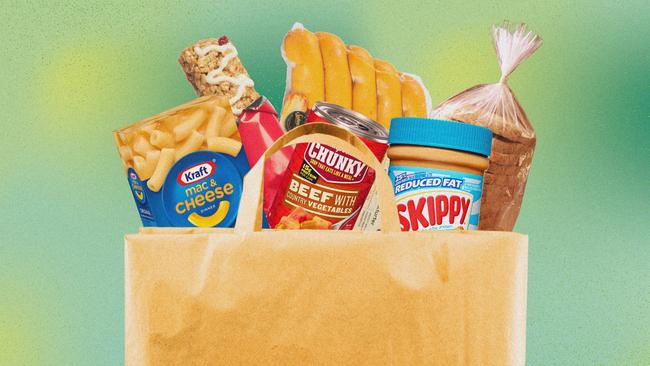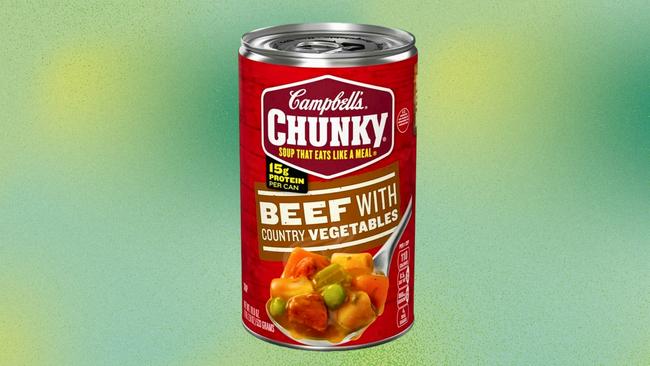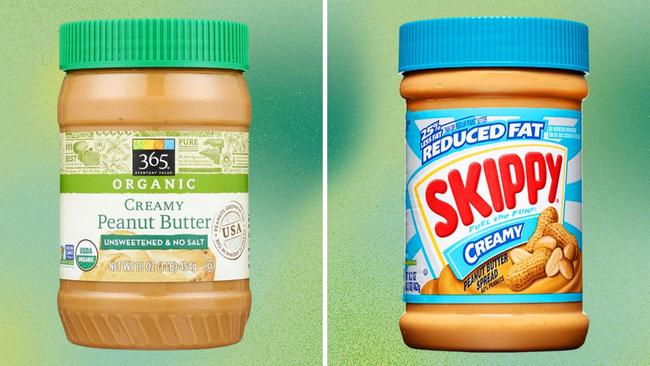The trouble with America’s ultra-processed diet
Concern is rising about ultra-processed foods in diets, and their effects on our health.

Should your granola bar come with a warning label?
Concern is rising about the amount of ultra-processed foods in American diets, and the effect eating so many of those foods has on our health. Part of the problem, nutrition researchers say, is that lots of healthy-seeming items — many breakfast cereals, soups and yoghurts as well as granola — fall into that category. Recent studies have linked diets high in ultra-processed foods to increased risks of obesity, Type 2 diabetes, cancer, cardiovascular disease and depression.
Yet there is no set definition of what makes a food ultra-processed, and scientists are still figuring out exactly why eating a lot of these foods is associated with health problems.
These foods are coming under a microscope as the U.S. government prepares the latest version of its dietary guidelines, which tell Americans which types of foods to eat and how much. For the first time, the government is asking its scientific advisory committee to consider how diets consisting of varying amounts of ultra-processed foods influence body composition and obesity risk.
Food companies dispute the idea that their products are unhealthy and say that packaged food gives people a convenient, affordable way to get nutrients. “Attempting to classify processed foods as unhealthy simply because they are processed misleads consumers,” says David Chavern, chief executive of Consumer Brands Association, a trade group representing the consumer products industry, including food manufacturers.
Ultra-processed foods now make up a majority of Americans’ diets. About 58% of the calories that U.S. adults and children ages 1 and older consume in a day come from ultra-processed foods, according to an analysis of federal data collected from 2001 to 2018. Among children, the number is higher — and is growing. In 2018, children ages 2 to 19 received 67% of their daily calories from such foods, up from 61.4% in 1999, according to another analysis of federal data.
However, frozen pizza, chicken nuggets and protein bars — the bulk of them ultra-processed according to some experts — are popular for a reason: They are cheap, tasty and convenient.
What is ultra-processed food?
Nutrition researchers generally consider foods ultra-processed if they include ingredients that you wouldn’t find in a home kitchen, such as high-fructose corn syrup and emulsifiers, said Christina A. Roberto, director of the Psychology of Eating and Consumer Health Lab at the University of Pennsylvania’s Perelman School of Medicine.
Many researchers define foods’ level of processing using a classification system published by scientists in Brazil.
Unprocessed or minimally processed foods are pretty close to their natural state — fruits, vegetables, plain meat. They might be altered via processes such as drying, roasting or pasteurising and can include some preservatives, but lack added salt, sugar or other food substances, said Carlos A. Monteiro, a professor in the department of nutrition at the School of Public Health at the University of Sao Paulo and a co-creator of the system.

Processed foods might be preserved by canning, bottling or some fermentation, and might contain ingredients such as butter or salt: Think canned beans, cheese or fresh bread you would find at a local bakery.
Most ultra-processed foods have some engineering involved. To make them, companies generally break down whole foods and chemically modify them to create ingredients like soy protein isolate, derived from soybeans, and maltodextrin, a sweetener derived from corn, rice or other grains. Ultra-processed foods also often include ingredients that enhance a food’s flavour, colour or texture.
What’s healthy?
Not all ultra-processed foods are equal, some scientists say, and some might be good for you.
Plenty of foods that tout health benefits with labels like “organic,” a “good source of whole grains” or “low in sugar” are ultra-processed, said Lindsey Smith Taillie, associate professor in the nutrition department at the University of North Carolina Gillings School of Global Public Health.
“The more of those you see on a product, the more likely it is to be ultra-processed,” she says. “Eggs or milk or plain fruit and vegetables don’t carry claims.”
Among foods considered ultra-processed by the classification system are supermarket staples like Pepperidge Farm Whole Grain 100% Whole Wheat bread, Yoplait strawberry yoghurt, Nature Valley Oats & Honey Protein Granola, Beyond Burger, Clif Builders Protein bar, Skippy Reduced Fat Creamy Peanut Butter Spread and Campbell’s Chunky soup, beef with country vegetables.

General Mills, which markets Yoplait yoghurt and Nature Valley granola, noted that there is no single definition of ultra-processed food. A nutrition adviser for Beyond Meat said their products provide health benefits and shouldn’t be put into a category with unhealthy food.
Hormel Foods, which makes Skippy, referred questions to an industry association, which disputed the suggestion that processed foods are unhealthy. Campbell’s, which markets Pepperidge Farm as well as its soup, said both products have significant nutritional benefits and “should not be labelled subjectively.” Clif Bar said its Builders brand is designed “to help fuel muscle recovery after physical activity.”
The health risks
In nature, most foods are either high in fat, like meat, or high in carbohydrates (which turn into sugar in the body), like fruit. Ultra-processed foods are often high in both fat and carbs, which causes them to act more potently on the reward systems in our brains and can make them addictive, said Ashley Gearhardt, a professor of psychology at the University of Michigan who studies food addiction.
Foods such as ultra-processed ice cream, French fries, pizza and chips “are beyond anything our brain evolved to handle,” she said. Diets high in fat, sugar and sodium are associated with cardiovascular disease and other health issues.
An influential study from researchers at the National Institutes of Health found that people who ate a diet high in ultra-processed foods consumed more calories and gained weight compared with people who ate a minimally processed diet — even though the diets contained roughly the same amounts of calories, fat, sugar, sodium and fibre.
Scientists created two diets, one with most calories coming from foods like packaged muffins and deli turkey and the other with most calories coming from minimally processed foods, including scrambled eggs and salads with chicken.
When people ate the majority-ultra-processed diet, they ended up consuming about 500 calories more a day than they did on the less-processed diet. After two weeks, they gained about 2 pounds. Participants lost about 2 pounds after two weeks on the unprocessed diet.
The Wall Street Journal




